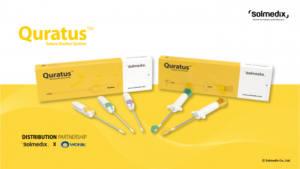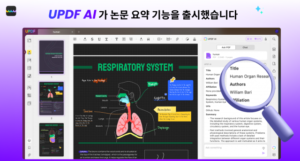AI Generation Leading the Generative AI Revolution with Advanced Technology – 87% of Indian Respondents Using Generative AI 81% of University Students and 62% of Employees Already Using Generative AI 11 Billion Work Hours to be Reduced or Eliminated by Generative AI
A significant report highlighting the ‘AI Generation’ in the Asia-Pacific region has been released. Deloitte Korea conducted a survey from February to March 2024, involving 2,903 university students and 9,042 corporate employees across 13 countries, including Australia, China, India, Japan, Singapore, Taiwan, Korea, New Zealand, and Southeast Asia (Indonesia, Malaysia, Philippines, Thailand, Vietnam). The findings are compiled in the report titled ‘Status and Implications of Generative AI in the Asia-Pacific Region.’
The survey results indicate that the young AI generation and developing countries are spearheading the generative AI revolution in the Asia-Pacific region. It is projected that within five years, 32% of people will use generative AI daily, affecting 11 billion work hours. However, 75% of companies are still hesitant to adopt and utilize generative AI.
Young AI Generation Leading the Generative AI Revolution… Employees Expect 61% of Work to be Affected by Generative AI in Five Years
According to the report, 43% of corporate employees in the Asia-Pacific region are using generative AI in their work, and 60% of students stated that generative AI has influenced their careers. Companies expect AI investments to grow from $25 billion in 2022 to $117 billion by 2030, a 4.7-fold increase.

<Infographic on Deloitte’s ‘Status and Implications of Generative AI in the Asia-Pacific Region’>
Students and young corporate employees are leading the generative AI revolution in the Asia-Pacific region. 81% of university students and 62% of employees are utilizing generative AI, suggesting that the ‘AI generation,’ which has grown up with advanced technology, is likely to be actively engaged in AI usage. Particularly, young employees aged 18 to 24 are twice as likely to use generative AI compared to middle-aged employees. The proportion of people expected to use generative AI daily is projected to increase from 11% to 32% over the next five years.
Developing countries are also at the forefront of generative AI adoption. 87% of Indian respondents and 76% of Southeast Asian respondents reported using generative AI, while only 39% of Japanese respondents indicated the same. The proportion of people actively responding to generative AI trends was over 70% in India and China, the highest in the region, while it was less than 30% in Japan. This disparity is attributed to the higher proportion of ‘digital natives’ in the total population of developing countries.
Generative AI is expected to impact approximately 11 billion work hours annually across the Asia-Pacific region, accounting for 16% of total work hours. Employees anticipate that generative AI technology will influence 61% of their work in the next five years. The four industries expected to undergo significant changes in the short term are finance, information and communication technology (ICT) and media, professional services, and education, which together account for 20% of the Asia-Pacific economy. Deloitte Korea believes that startups and scale-up companies, which are more innovative and less constrained by large-scale systems, will lead the generative AI revolution.
Generative AI Saves About One Day per Week… Only 25% of Companies Actively Adopting and Utilizing Generative AI
Generative AI significantly enhances work efficiency. Approximately 80% of generative AI users reported improved work speed and reduced time spent on tasks, saving an average of 6.3 hours per week. Additionally, 71% of these users noted an improvement in their ability to generate new ideas, and 67% reported an enhanced ability to learn new skills. Generative AI has also contributed to improved work-life balance, with 78% of employees saying it reduced their physical fatigue. Other notable responses included using generative AI to help colleagues (75%), changing the nature of work and learning (81%), and enjoying using generative AI for work and learning tasks (87%).
Despite the growing presence of generative AI in the Asia-Pacific region, there is still a long way to go. Only 25% of employees consider their company to be a generative AI innovator or early adopter. While this proportion is expected to increase slightly to 34% within the next five years, 22% of current employees still work at companies that prohibit or restrict the use of generative AI. Interestingly, 76% of employees in such restrictive environments still use generative AI, indicating that such prohibitive measures are largely ineffective.
Companies Need Clear Core Value Areas… Enhance Employee Engagement and Establish Data Infrastructure and Governance
The report suggests that companies need to develop and implement strategies focused on their core value areas to effectively adopt and utilize generative AI in the Asia-Pacific region. Leaders should identify the value they provide and develop strategies to maximize that value.
Additionally, companies should share generative AI examples through internal showcases and seminars, foster collaboration among employees, and empower them to voluntarily participate in AI research and development. Establishing data infrastructure for collecting and analyzing unstructured data to derive new insights, as well as setting up data governance systems to manage risks associated with generative AI usage, is also crucial.
Myeong-Soo Jo, Consulting Partner at Deloitte Korea, stated, “Employees and students in the Asia-Pacific region are using generative AI in their work and studies, and this trend will accelerate. Companies can enhance work efficiency and strengthen their competitive edge by more actively adopting and utilizing generative AI. We hope this report provides valuable insights into the adoption and utilization of generative AI.”
The full report, ‘Status and Implications of Generative AI in the Asia-Pacific Region,’ is available on the Deloitte website.
Website: https://www2.deloitte.com/kr









